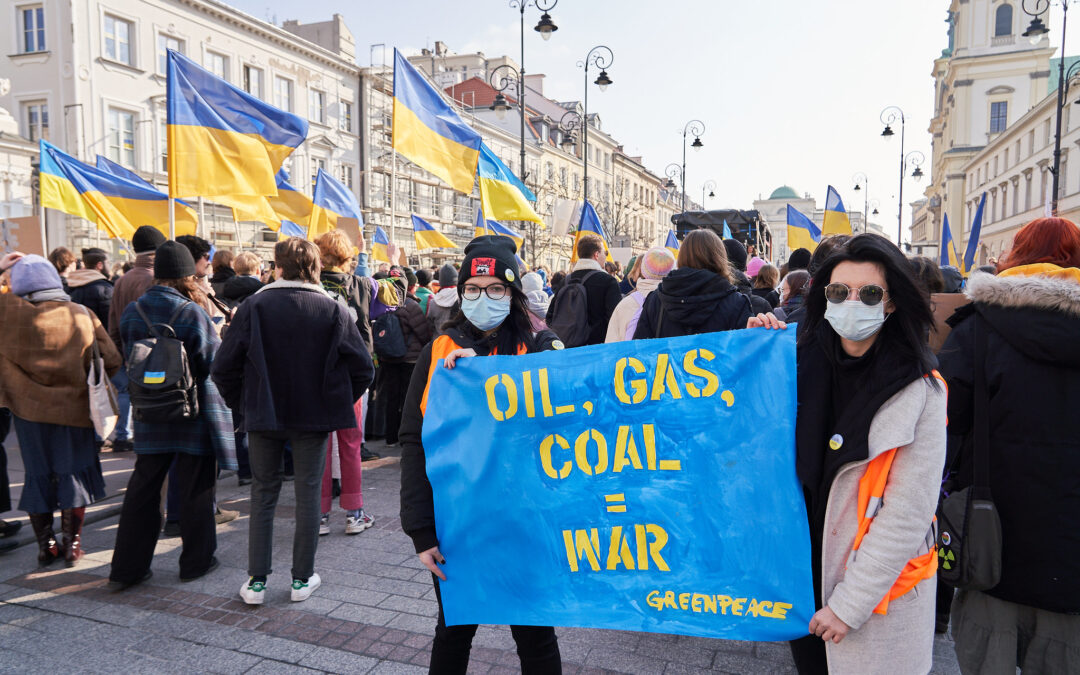Germany’s ambassador to Poland has rebuffed criticism from the Polish defence minister, who accused Germany of helping finance Russia’s war against Ukraine. The ambassador pointed out that Poland has also spent billions on importing Russian energy.
Poland’s current government has long accused Berlin of disregarding the dangers of maintaining close economic relations with Russia. It strongly opposed construction of the Nord Stream 2 pipeline that was supposed to bring Russian gas to Germany.
Following Russia’s full-scale invasion of Ukraine last year, Poland has stepped up such criticism and argued that its longstanding warnings have been vindicated.
“There is no doubt it was Germany’s policy that helped Putin to get money, which he used to strengthen his army,” defence minister Mariusz Błaszczak told state broadcaster TVP this week. “Nord Stream is an example…Although we were called Russophobic, we warned against it.”
In response to the interview, the German ambassador, Thomas Bagger, tweeted in Polish: “Does the minister know how many billions of zloty Poland transferred to Moscow every year in exchange for Russian energy?”
Czy pan minister wie, ile miliardów złoty Polska co roku przelewała do Moskwy w zamian za rosyjską energię?https://t.co/h5MnnTKRMH
— Thomas Bagger (@Amb_Niemiec) March 1, 2023
In the 20 years until 2021, Poland spent 733 billion zloty on oil and coal imports from Russia, a report last year by the Forum Energii think tank showed. (It noted that the amount spent on gas is impossible to calculate due to the secrecy of contracts.)
However, long before Russia’s full-scale invasion, the current Polish government had taken steps to reduce the country’s dependence on Russian energy. In 2019, it announced that it would not renew a contract for the import of Russian gas – agreed under the previous government – when it expired in 2022.
It has sought to secure alternative sources of gas, including through a liquefied natural gas (LNG) terminal (built under the previous government) that opened in 2016 and through the construction of a pipeline bringing Norwegian gas to Poland, which began operating last year.
The Baltic Pipe, an idea first conceived in 1991, has finally begun pumping gas from Norway to Poland via Denmark.
The pipeline will bolster both Poland's security and Europe's efforts to wean itself off Russian gas, writes @wjakobik https://t.co/VEnKo14e8Q
— Notes from Poland 🇵🇱 (@notesfrompoland) December 5, 2022
After Russia’s invasion, the Polish government accelerated its plans, announcing that it would end the import of all Russian energy by the end of 2022. While it achieved that aim with gas and coal, it this year continued to import Russian oil (though at a much lower level than before).
In January 2023, Poland imported around 10% of its oil from Russia. It was that month the biggest importer of Russian oil in the EU. State energy giant Orlen argued, however, that this was only because of a previously agreed contract that could not be broken without EU sanctions.
That situation was resolved last week when Russia itself unilaterally halted oil exports to Poland through the Druzhba pipeline. Its decision came one day after Poland became the first country to donate modern, Western tanks to Ukraine.
Meanwhile, the EU’s previous largest buyer of Russian oil, Germany, ended those imports in January this year. Last year it also ended gas and coal imports from Russia
Shocking – countries like my Poland, are massively increasing imports of Russian oil, rapidly raising prices for customers and lining the pockets of oil companies and refineries.
Russian oil revenues are up 80% y/y.https://t.co/snRbqLhxjz pic.twitter.com/TjAbJs4SIH— Joanna Pandera (@jmpandera) June 14, 2022
While Błaszczk has not yet publicly responded to Bagger’s jibe, some figures from the ruling Law and Justice (PiS) party commented below the ambassador’s tweet.
In response to the question of how many billions of zloty Poland has spent on Russian energy, PiS MP Radosław Fogiel wrote “certainly less than Germany, according to Deutsche Welle”, including an image of an article from last April identifying Germany as the biggest importer of Russian energy.
PiS MEP and former foreign minister Witold Waszczykowski also criticised Bagger for “sparring” with the defence minister, something Waszczykowski said was inappropriate for an ambassador.
Z pewnością mniej niż Niemcy, jak informuje Deutsche Welle. Cieszę się, że mogłem pomóc, Panie Ambasadorze. pic.twitter.com/xLQTQuxYP4
— Radosław Fogiel (@radekfogiel) March 1, 2023
Main image credit: Greenpeace Polska/Flickr (under CC BY-ND 2.0)

Alicja Ptak is deputy editor-in-chief of Notes from Poland and a multimedia journalist. She has written for Clean Energy Wire and The Times, and she hosts her own podcast, The Warsaw Wire, on Poland’s economy and energy sector. She previously worked for Reuters.




















